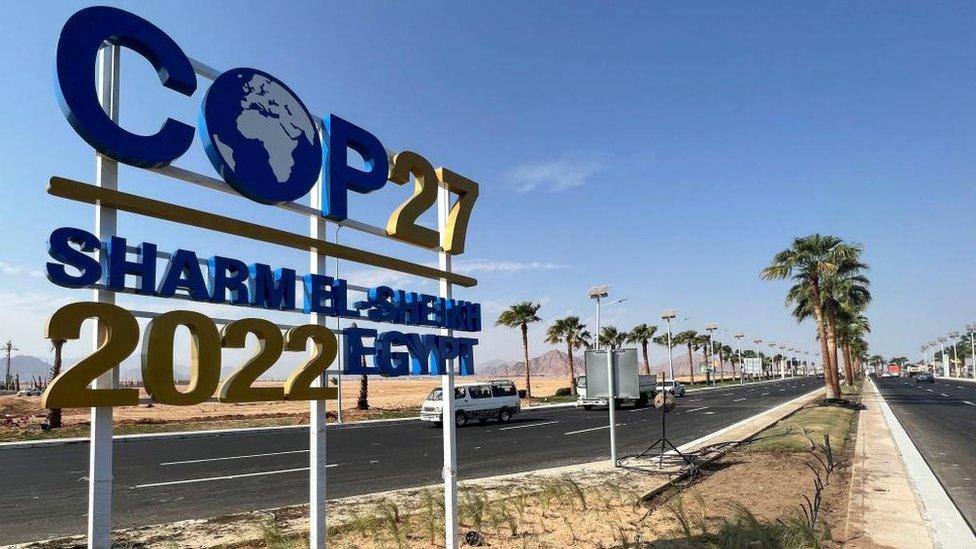Do not end green energy grants, manufacturers urge MPs
- Published
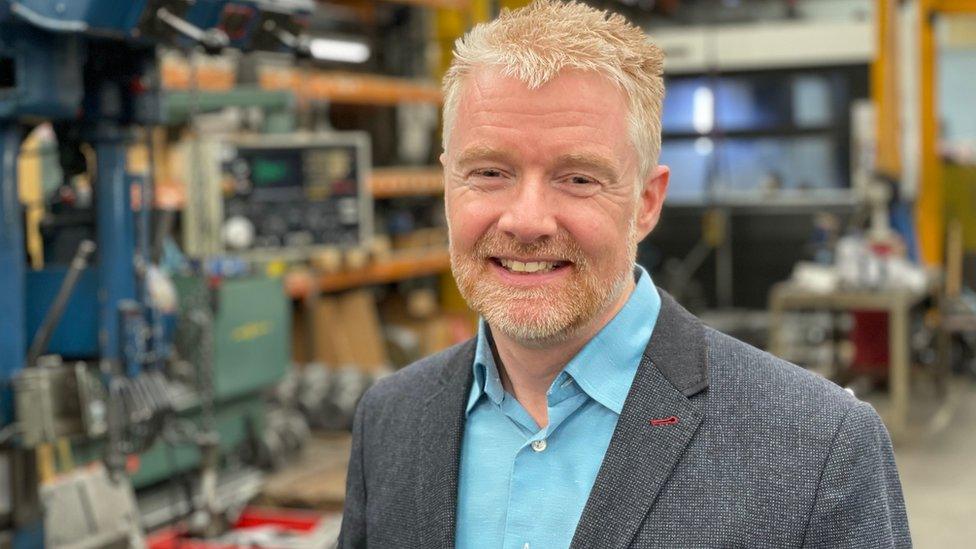
Sandy Hore-Ruthven says the EU grants have helped firms cut costs and go green
Manufacturing firms are appealing to ministers to match a European grant scheme that subsidised the cost of installing renewable energy.
Under the EU system companies were able to claim up to a third of the cost for installing solar panels, biomass boilers or double glazing.
European funding has run out and there were no plans to replace it with a British scheme, the government said.
Instead, ministers said there would be tax breaks for green investments.
In Gloucestershire the programme was administered by Severn Wye Energy, an independent charity, which handed out nearly £500,000 of EU funds.
Post Brexit, there was no new money from Brussels and by September the fund had virtually run dry, the charity said.
Chief executive Sandy Hore-Ruthven is calling on the government to roll out a British version of the grants.
He said: "We know that 90% of the businesses that we've worked with would not have invested in energy saving without those grants, they make a huge difference."
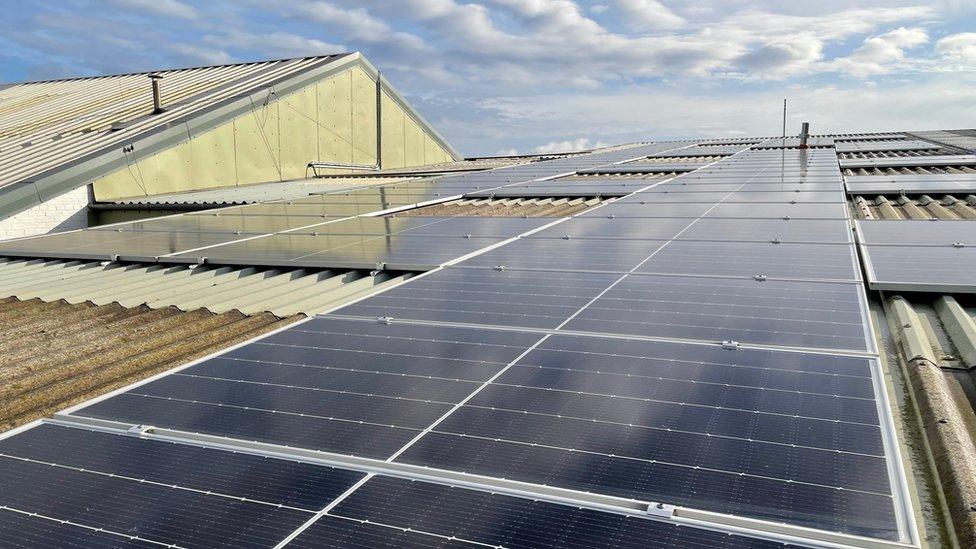
Solar panels are helping to cut energy bills at an engineering firm in Gloucestershire
At the COP27 meeting in Egypt, the prime minister called on the world to invest more in clean energy.
He said: "We need to move further and faster to transition to renewable energy, and I will ensure the UK is at the forefront of this global movement as a clean energy superpower."
In an engineering factory on the banks of the River Severn in Gloucestershire there is no more money for solar panels.
Colin Allen runs Albany Engineering, a small firm employing 50 people making high tech pumps and gears for industry.
Powerful lathes grind blocks of steel into sharp-toothed gears and screws.
Immense drills cut through blocks of metal, creating the tools companies need.
It all uses a huge amount of energy, about 1,100 kilowatt hours (kWh) every day.
For comparison, the average UK home consumes about 3,000 kWh per year.
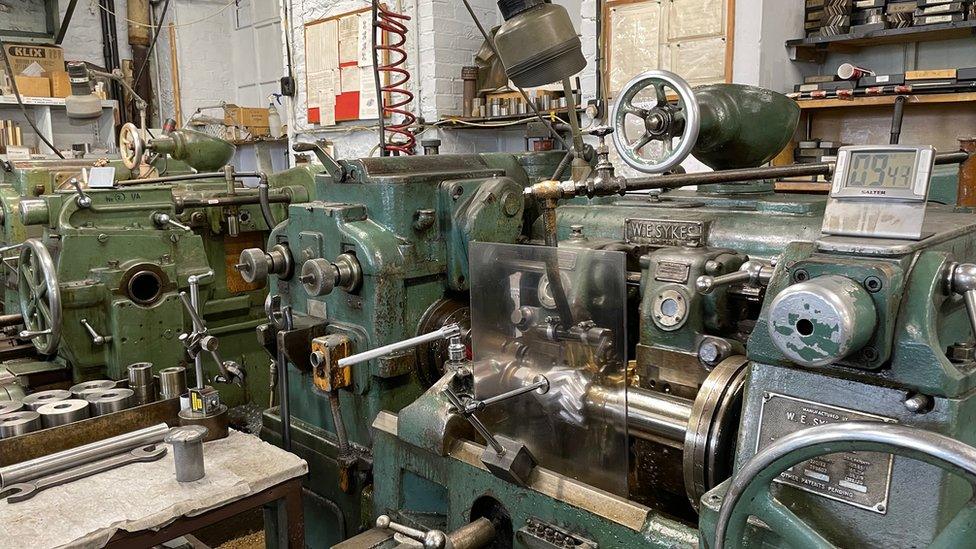
The huge lathes at Albany Engineering use 100 kWh of electricity per hour
Like most energy-intensive companies, his business faces a huge rise in energy bills.
Much of the pain has been reduced by his new solar panels newly installed on the roof.
They save about £1,000 per month, he tells me. Inside the factory, less obvious investments are also paying off.
Steel windows from the 1950s have been replaced by double glazing.
Old, draughty, wooden shutter doors have gone, new airtight rollers were installed in their place.
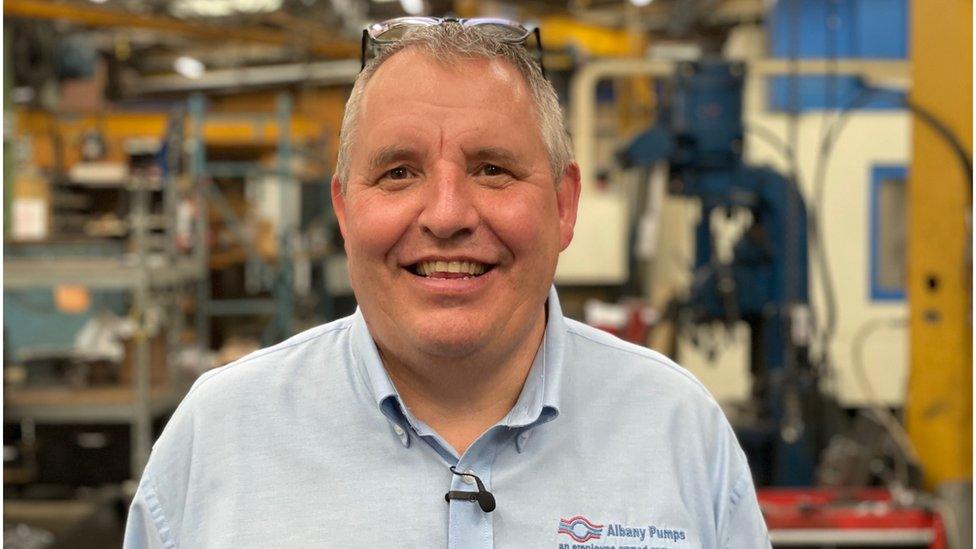
"The grant made it possible to go green", says Colin Allen, MD of Albany Engineering
"We want to put panels on the other roof now, and replace the second half of our windows.
"But we can only afford it, if we get another grant," Mr Allen said.
To stay competitive, Albany has to spend money on new engineering machines. They cannot afford the upfront costs of solar panels, despite the savings they could make in the long term.
Sandy Hore-Ruthven from Severn Wye Energy told me Albany's situation was typical.
Companies need the green energy systems to cut their bills, but cannot afford the upfront costs.
He said: "That's why we are asking government to replace those EU grants to help businesses grow and reduce their energy bills, and cut their carbon emissions."
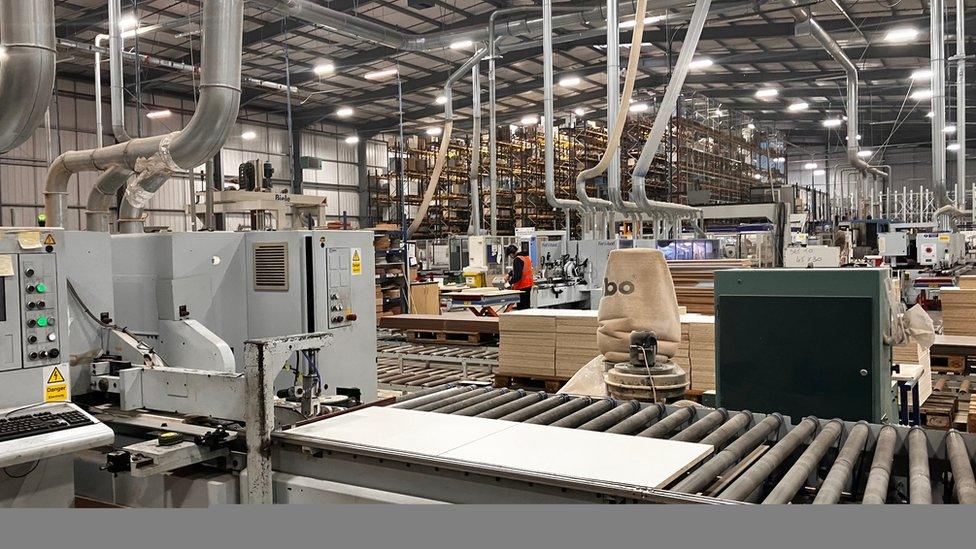
Premiere Kitchens in Gloucester has saved thousands on its energy bill by installing solar panels with the help of grants
In a modern business park on the outskirts of Gloucestershire, I see another firm relying on green power to survive the energy crisis.
They make kitchens, hundreds of them, usually sold to low-cost social housing organisations.
There are huge saws and drills, cutting fibreboard into precise pieces. A vast network of pipes crosses the factory ceiling, sucking dust from the air.
"Two years ago our energy bill was £250k," the group managing director told me.
Paul Markey set Premiere Kitchens up, and knows the numbers backwards. As energy prices rose, his annual bill doubled.
Then in September, he was quoted a new figure of £2.5m.
"It was eye-watering," he said, "and actually quite scary."
Fortunately, he had just installed a big, solar electric system on the factory roof.
Once again, it was the grant that made it possible.
Bureaucratic funding obstacle?
Eight years ago, when he first looked at solar, the payback was about eight to nine years.
"It just didn't make business sense", Mr Markey said.
Then two years ago, he did the numbers again. Electricity had risen in price, but crucially the 30% grant was on the table.
That cut the payback time from five years to about three and a half years, he told me.
"It was worth it, so we went for it. And I'm glad we did, because it's protecting us from about 60% of the cost rises."
So why will the British government not continue the support for small firms to go green?
The answer might be bureaucratic, rather than ideological.
The EU scheme was run by something called the European Regional Development Fund. Agencies like Severn Wye Energy bid for cash direct from Brussels to hand out to local firms here. There was no UK-wide national project, and so the UK government does not, it seems, have the scheme on its list of European projects to consider replacing.
When I called the Department for Business, Enterprise and Industrial Strategy, a spokeswoman told me they did not know much about the EU scheme. Instead, she pointed out that companies could offset green investments, like solar panels, against their profits in tax returns.
But as Mr Sunak calls on the world to go "further and faster" in moving to renewable energy, companies here want him to support them by matching the European grants.
The US former vice president Al Gore warned COP27 attendees: "We have a credibility problem, all of us... We're talking, and we're starting to act, but we're not doing enough."
- Published7 November 2022
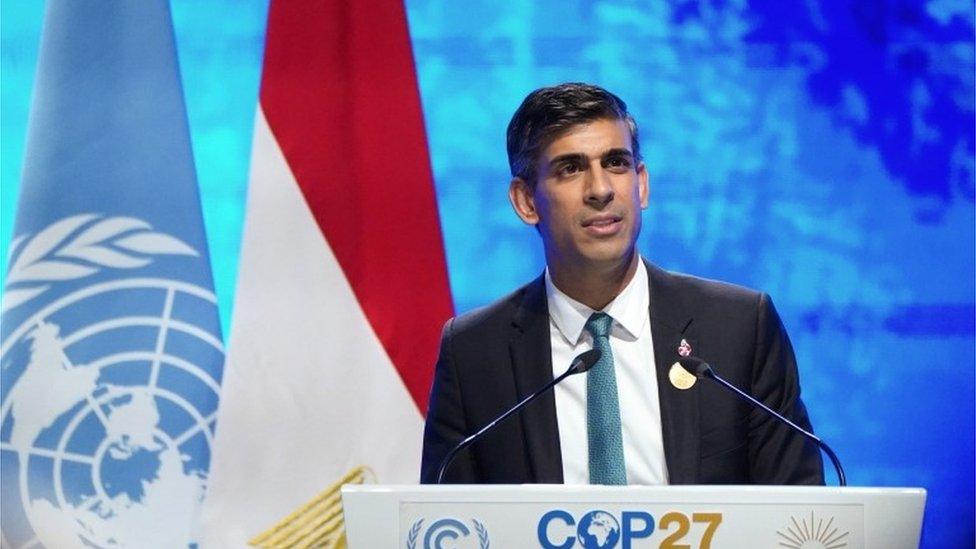
- Published7 November 2022
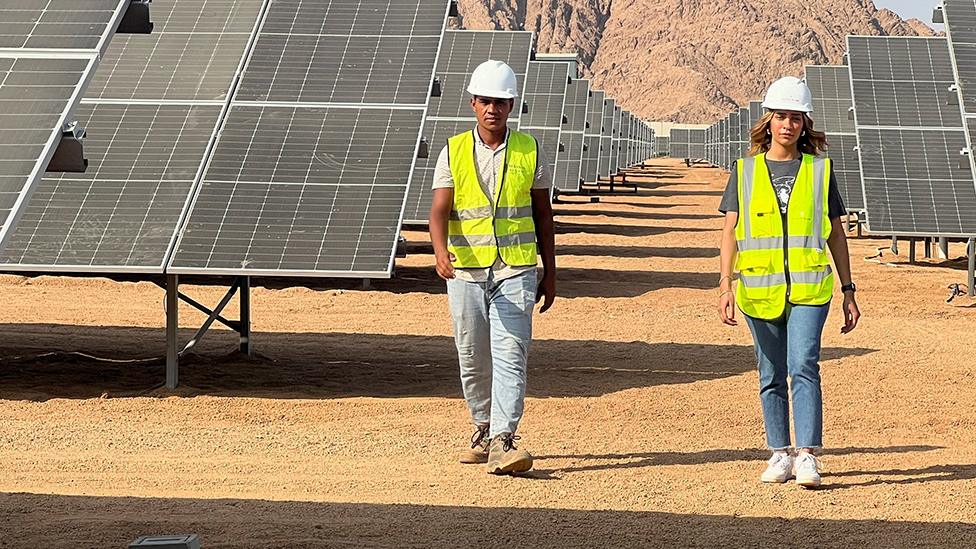
- Published5 November 2022
